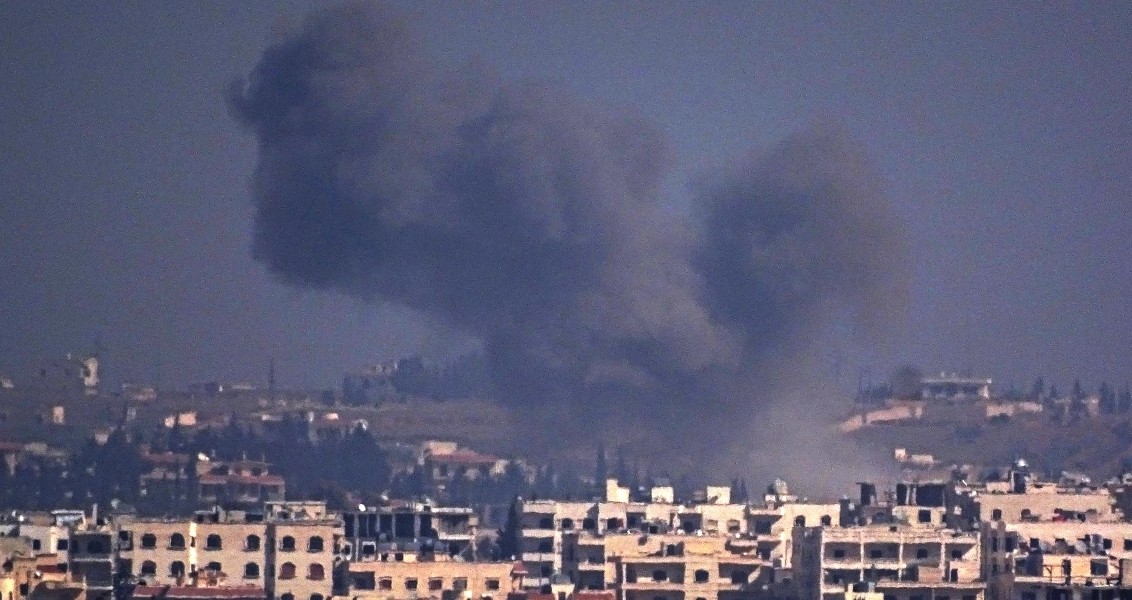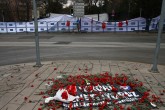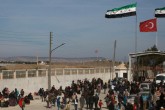The heinous terrorist attack and massive explosion perpetrated by PKK- and Democratic Union Party (PYD)-affiliated terrorists in the heart of Ankara on Wednesday was a stark reminder of the extension of proxy and perception wars that have been moving from Syria to Turkey. There is a complex constellation of subcontracting paramilitary groups that oscillate between alliances with major players in the Syrian civil war theater, including DAESH, al-Nusra Front, Hezbollah and the PYD. On the other hand, a perception war continues with full force to influence the global public opinion concerning the legitimacy of the aggressive turf wars on the ground. While the U.S. administration has been hesitant and indecisive in showing leadership for a solution to the Syrian quagmire, Russia has abused the jet crisis with Turkey to transfer a substantial chunk of its modern arsenal and air power to Syria and thereby swiftly acquiring the status of the main playmaker thanks to its technological competence. The coexistence of an American president determined not to send troops to the Middle East and a Russian president determined to send troops to the Middle East has created the current Syrian conundrum. While Russia has been supporting Syria’s Bashar Assad and his regime with extensive air attacks mostly on moderate opposition and civilian targets, the Russian propaganda machine defined the operations as part of the global war against DAESH. Russia’s proxy war through support provided to the advancement of the PYD and Shiite paramilitary groups is ongoing parallel to Iran’s own proxy war using Hezbollah and affiliated groups. However, the dominant perceptions about Iran following the nuclear deal and rapprochement with the Western world leading to the cordial visit by Iranian President Hassan Rouhani to European capitals, where contracts worth billions of dollars were signed, reflected Tehran as a transforming partner that could be easily incorporated into the global system.
While all these developments were taking place, Turkey stood firm as a principled and constructive regional power trying to advance the reconciliation process with its Kurdish community at home, providing extensive humanitarian support to around 3 million Syrian refugees within its borders and promoting a sustainable solution to the Syrian crisis. Despite widespread misinformation in international media outlets, Turkey has not been supporting DAESH at any point in time, nor did it have an existential problem with the PYD’s armed People’s Protection Units (YPG). Ankara opened its air bases in İncirlik and Diyarbakır for use by the anti-DAESH coalition, tightened border controls and realized security operations against DAESH operatives, which drew the ire of this terrorist organization. While Turkey was stigmatized by international media as a country supporting DAESH terrorism, civilians were losing their lives in various Turkish cities beginning in June 2015.
When it comes to the PYD, its advance as a totalitarian organization that oppressed other Kurdish political movements and monopolized power in northern Syria was disregarded, as it became a useful subcontractor for the United States and Russia in the ground war against DAESH. When the PYD abused its defined mission of fighting DAESH and tried to make one-sided territorial gains, Turkey reacted correctly, feeling that a new geostrategic design was being made along its southern borders. Especially when the PYD tried to cut the logistical corridor between Azaz and Aleppo, Ankara interfered with artillery shelling within the rules of engagement so as to prevent the fall of Aleppo, which could trigger a massive new wave of refugees. But the perception war saw the initiative of Russia, which caused hundreds of civilian deaths to support the Assad regime, take the issue to the U.N. Security Council and manipulate the Venezuelan presidency to make an unofficial statement condemning Turkey’s alleged aggression.
Finally, the investigation into the latest terrorist attack in Ankara has revealed that the operatives associated with the PKK, PYD and Assad regime were involved. But as the PYD has been widely depicted as freedom fighters representing Syrian Kurds rather than a subcontracting terrorist group in proxy wars, convincing the global public of their responsibility will be an uphill battle. But from now on, Turkey ought to win both the low-intensity war waged by proxy agents in and around its borders as well as the perception war in conventional and social media by forcefully reflecting the truth about the developments on the ground.
[Daily Sabah, February 20, 2016]
In this article
- Economy
- Opinion
- Security
- 2015
- 2016
- Aleppo
- Assad Regime
- Bashar Al Assad
- Civil War
- DAESH
- Daily Sabah
- Democratic Union Party (PYD)
- Europe
- Hassan Rouhani
- Hezbollah
- Iranian President
- Islamic Republic of Iran
- Kurdish Community
- Kurdistan Workers' Party Terrorist Organization (PKK)
- Middle East
- Misinformation
- Opposition
- People's Protection Units (YPG)
- PKK - YPG - SDF - PYD - YPJ - SDG - HBDH - HPG - KCK - PJAK - TAK - YBŞ
- Proxy War
- Regional Power
- Russia
- Syria
- Syrian Civil War
- Syrian Conflict
- Syrian Crisis
- Syrian Refugees
- Syrian Regime
- Terror
- Terrorism
- Turkish Foreign Policy
- Turkish-American Relations
- Türkiye-US Relations
- U.N.
- United Nations (UN)
- United Nations Security Council (UNSC)
- United States (US)
- Venezuela
- Western World


